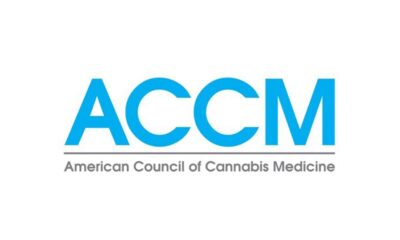Business
Horizons talk shifts from investors to insurance
Published
1 year agoon

This article has been updated to reflect that Optum is owned by UnitedHealth Group.
The 16th Horizons: Perspectives on Psychedelics conference is being held in New York this week at the Academy of Medicine and the tone on the business day was decidedly different.
At past Horizons conferences, the business day was usually filled with investors and talk of which companies were hot and who would generate the most funds raised. This year the chatter turned to the nuts and bolts of insurance and commercialization.
Investors are spent
Dr. Dan Grossman, head of field building at the Psychedelic Science Funders Collaborative and board member at Lykos Therapeutics, noted that $4 billion was invested in the psychedelic industry with most of that money steered toward drug development. He said that was divided by $1.6 billion from venture capital firms and $2.4 billion in public financings. Roughly $3.5 billion, around 80%, of that was spent on drug development.
However, since the first quarter of 2023, that has shifted, with only 23% of the capital coming from venture funds and 77% coming from public monies like private placements. The investments have also shifted to 96% for drug development and only 3% for items like clinics and therapeutic training. Dr. Grossman cited Psychedelic Alpha for providing the data points.
This shift was notable as many of the investor groups that had spoken in the past were largely absent. Still, Dr. Grossman stated that the pipeline is $2 billion-3 billion underfunded and competing for capital with non-psychedelic approaches to mental illness drugs. Plus, there is a great deal of opportunity in the pipeline with an enormous 60 compounds in the exploratory stage.
However, Dr. Grossman said the reality is that mainstream pharmaceutical companies aren’t necessarily looking at specific drugs but at overall compounds.
Michael Jiang, senior managing director in equity capital markets at Guggenheim Securities, said investors want more positive data. He thinks that positive phase three data from Compass Pathways (NASDAQ: CMPS) by the end of the year will shift investor interest.
Commercialization
Thursday was the business day for the conference, so there was little talk of study trials or hopeful treatment protocols. Instead, it dealt with the future of psychedelic drugs and that ultimately companies developing these drugs had sights set on commercialization. That means getting the FDA (Food and Drug Administration) on board.
Ritu Baral, managing director at Cowen and senior biotechnology research analyst, was encouraged that the FDA announced an advisory committee meeting on June 4 to discuss “Psychopharmacologic Drugs.” Baral expressed optimism because she said the FDA has had staffing issues and is so late on so many other items that highlighting these drugs was a surprise.
Commercialization also means administering these drugs and how they look in a real-world setting. Baral noted that the Johnson & Johnson (NYSE: JNJ) drug Spravato was initially a problem because hospitals were being asked for beds for the treatments. Those beds were needed for more profitable oncology patients creating a conflict over bed demands. She said once infusion centers were created separately for Spravato treatments it has reduced the conflict and improved the profits for the hospital around Spravato.
The conversation also tackled the road that these drugs have to take to even get to the point of being prescribed. Suprotik Basu, managing partner at Helena Special Investments, noted that there were only so many pools of capital that exist to take drugs to commercialization. He believes that Lykos Therapeutics will set the pace and that many companies are just drafting off that company’s advances.
“It’s going to be a pain point as some companies start rolling out drugs and need to meet patient demand. The delivery infrastructure will look more consolidated in the future,” Basu said.
He thinks ultimately most of today’s psychedelic drug companies will end up partnering with Lykos to get their drugs to patients as they won’t have the resources needed to accomplish this last mile.
Jiang agreed, saying, “In reality, not many biotech companies get to commercialization on their own.”
Insurance puzzles
Getting drugs to patients is one thing, but getting them paid for is another. Even the experts on the panel confessed that even though they consider themselves experts, U.S. insurance is complicated and confusing.
Columbia University Professor Heidi Allen, an expert on Medicaid, explained that high-priced treatments are hard to get approved for the program. Medicaid has to be balanced every year by states, so if they agree to an expensive treatment, it means the money comes from somewhere else in the budget, such as education or infrastructure.
In addition, Medicaid pays providers less, which means that if Medicaid approved a psychedelic drug treatment, low-income patients would likely have a hard time finding a provider in the network.
Allen also noted that few people in the Medicaid community even discuss or know of psychedelic drug treatments for mental illness, so the education curve is steep.
In states like Oregon, treatments are already happening without insurance. “Why would I, as an insurance company, agree to pay for something that people are already doing on their own,” she mused.
Dr. Charles Gross, a former vice president at Elevance (Anthem) where he was responsible for commercial, Medicare & Medicaid behavioral health sciences, outlined the current state of health care, where insurance companies are now running medical offices. For example, Optum handles outpatient care for UnitedHealth Group insurance. He said it isn’t about convincing the doctors to prescribe the drugs but getting pharmacy committees to agree.
“Decision makers are not chief medical officers. These drug companies have to impress underwriters and account managers,” said Dr. Gross.
While there is still a great deal of enthusiasm for these drugs and the issues they can solve, the reality of what it will take to get them to the finish line is sobering.

Author: mscannabiz.com
MScannaBIZ for all you Mississippi Cannabis News and Information.
You may like
-


Millennials Are Spending Big on Luxury Travel
-


Ohio Lawmakers Advance Bill To Scale Back Voter-Approved Marijuana Law And Impose Hemp Regulations
-


Data Confirms Cannabis Is Safer Than Alcohol
-


American Council of Cannabis Medicine Unveils Major Industry Initiative to Expand Medical Cannabis Access
-


Scientists Develop New Class Of CBD Using A Common Kitchen Spice—Not Cannabis
-


Evidence About Burning Mouth Syndrome And Cannabinoids
Business
Nebraska medical cannabis regulations stall in legislative committee
Published
6 months agoon
April 18, 2025

A Nebraska legislative committee voted 5-3 against advancing a bill designed to implement and regulate the state’s medical cannabis program, leaving legislators and advocates searching for alternative paths forward, according to the Nebraska Examiner.
The General Affairs Committee rejected Legislative Bill 677, sponsored by State Sen. Ben Hansen of Blair, during a Thursday vote where committee members declined to offer amendments to the legislation, the publication reported.
“I don’t want to shut all the doors right now, but some doors are closing, and they’re closing fast, and so we have to act,” Hansen told reporters after the vote, according to the Examiner.
Nebraska voters approved medical cannabis in November 2024, with residents legally permitted to possess up to 5 ounces with a healthcare practitioner’s recommendation since mid-December. However, the regulatory commission created by the ballot initiative lacks effective power and funding to regulate the industry.
Hansen described his legislation as “a must” for 2025 to prevent a “Wild West” scenario in the state’s cannabis market. The bill would have expanded regulatory structure through the Nebraska Medical Cannabis Commission and extended deadlines for regulations and licensing to allow more time for implementation, the Examiner noted.
Committee disagreements centered on proposed restrictions. A committee amendment would have prohibited smoking cannabis and the sale of flower or bud products while limiting qualified healthcare practitioners to physicians, osteopathic physicians, physician assistants or nurse practitioners who had treated patients for at least six months.
The amendment also would have limited qualifying conditions to 15 specific ailments including cancer, epilepsy, HIV/AIDS, and chronic pain lasting longer than six months.
State Sen. Bob Andersen of Sarpy County opposed allowing vaping due to concerns about youth drug use, while committee chair Rick Holdcroft suggested selling cannabis flower would be “a gateway toward recreational marijuana,” a claim Hansen “heavily disputed,” according to the Examiner.
Hansen now faces a difficult path forward, requiring at least 25 votes to pull the bill from committee and then needing 33 senators to advance it across three rounds of debate, regardless of filibuster attempts.
Crista Eggers, executive director of Nebraskans for Medical Marijuana, remained optimistic despite the setback.
“This will not be the end,” Eggers said, according to the outlet. “Giving up has never been an option. Being silenced has never been an option. It’s not over. It’s not done.”
The legislative impasse is further complicated by ongoing litigation. Former state senator John Kuehn has filed two lawsuits challenging the voter-approved provisions, with one appeal pending before the Nebraska Supreme Court. The state’s Attorney General is also trying to do something about the hemp question, akin to other states across the country.

Author: mscannabiz.com
MScannaBIZ for all you Mississippi Cannabis News and Information.
Business
One of Las Vegas’ cannabis lounges closes its doors
Published
6 months agoon
April 18, 2025

Nevada’s cannabis lounge experiment faces some expected growing pains, with one of just two state-licensed venues closing its doors after barely a year in business, according to the Las Vegas Weekly.
“The regulatory framework, compliance costs and product limitations just don’t support a sustainable business model,” said Thrive Cannabis managing partner Mitch Britten, who plans to convert the space into an event venue until regulations loosen up.
The closure leaves Planet 13’s Dazed Consumption Lounge as the only operational state-regulated cannabis lounge in Nevada. Dazed manager Blake Anderson estimates the venue attracts around 250 customers daily, primarily tourists. One other establishment, Sky High Lounge, has operated since 2019 on sovereign Las Vegas Paiute Tribe land exempt from state regulations.
Even with Nevada regulators conditionally approving 21 more lounge licenses, potential owners are struggling to meet the $200,000 liquid assets requirement – particularly social equity applicants from communities hit hardest by prohibition.
Recreational marijuana has been legal statewide since 2017, but public consumption remains prohibited. That’s created an obvious disconnect for the millions of tourists who visit Las Vegas annually but have nowhere legal to use the products they purchase. The state recorded roughly $829 million in taxable sales during the 2024 fiscal year.
“It always comes down to money, and it’s difficult to get a space if you can’t afford to buy a building. On top of that, getting insurance and finding a landowner who’s willing to lease to a cannabis business is a challenge in and of itself,” said Christopher LaPorte, whose consulting firm Reset Las Vegas helped launch Smoke and Mirrors, told Las Vegas Weekly.
Many think the key to future success lies in legislative changes that would allow lounges to integrate with food service and entertainment – playing to Las Vegas’s strengths as a hospitality innovator. In the meantime, the industry will continue to adapt and push forward.
“Things take time,” LaPorte said. “There’s a culture that we have to continue to embrace and a lot of education that we still have to do. But at the end of the day, tourists need a place to smoke, and that’s what these places are.”

Author: mscannabiz.com
MScannaBIZ for all you Mississippi Cannabis News and Information.


Psyence Group Inc. (CSE: PSYG) told investors that it will be consolidating all of its issued and outstanding share capital on the basis of every 15 existing common shares into one new common share effective April 23, 2025 with a record date of April 23, 2025. As a result of the consolidation, the issued and outstanding shares will be reduced to approximately 9,387,695 on the effective date.
This is the second time a Psyence company has consolidated shares recently. In November, its Nasdaq-listed associate, Psyence Biomedical Ltd. (Nasdaq: PBM), implemented a 1-for-75 share consolidation as the psychedelics company worked to maintain its Nasdaq listing.
Psyence Group reported earnings in February when the company delivered a net loss of C$3 million and was reporting as a going concern. At the end of 2024, the company said it had not yet achieved profitable operations, has accumulated losses of C$48,982,320 since its inception.
Total assets at the end of 2024 were C$11,944,478 and comprised predominantly of: cash and cash equivalents of C$10,611,113, other receivables of C$159,808, investment in PsyLabs of C$1,071,981 and prepaids of C$68,243.
Still, the company is pushing ahead. Psyence told investors that it has historically secured financing through share issuances and convertible debentures, and it continues to explore funding opportunities to support its operations and strategic initiatives. “Based on these actions and
management’s expectations regarding future funding and operational developments, the company believes it will have sufficient resources to meet its obligations as they become due for at least the next twelve months,” it said in its last financial filing.
The company said it believes that the consolidation will position it with greater flexibility for the development of its business and the growth of the company.

Author: mscannabiz.com
MScannaBIZ for all you Mississippi Cannabis News and Information.

Millennials Are Spending Big on Luxury Travel

Ohio Lawmakers Advance Bill To Scale Back Voter-Approved Marijuana Law And Impose Hemp Regulations

Data Confirms Cannabis Is Safer Than Alcohol

American Council of Cannabis Medicine Unveils Major Industry Initiative to Expand Medical Cannabis Access

Scientists Develop New Class Of CBD Using A Common Kitchen Spice—Not Cannabis

Evidence About Burning Mouth Syndrome And Cannabinoids

Raw Garden Acquires ‘California Love’ to Grow Clean Cannabis Movement

Rhode Island Marijuana Officials Approve Timeline For Awarding New Dispensary Licenses

‘Rent-a-License’ Scheme Highlights New York Cannabis’s Track-and-Trace Problem

Alcohol Industry Steps Up Lobbying On Hemp Drinks As Congress Debates THC Ban

Cannabis Mogul Appointed Ambassador To Middle East Country

Pennsylvania Senators Approve Bipartisan Cannabis Bill To Create New Regulatory Body

Ahead Of New Jersey Governor Election, GOP Candidate’s Comments On Marijuana As A ‘Gateway Drug’ Resurface

Urgent Action Needed To End US Marijuana Arrests

Supreme Court takes up cannabis & gun rights case (Newsletter: October 21, 2025)

What Winning Looks Like: The New Jersey Dispensaries Playing a Different Game

Trump Taps Marijuana Industry ‘Visionary’ As Special Envoy To Iraq

Delaware Scam Claiming to Represent State-Licensed Dispensary Offering Illegal Cannabis Deliveries – Ganjapreneur
New York Should Legalize Psilocybin Therapy, Former Narcotics Prosecutor Says (Op-Ed)

Do Public Votes About Cannabis Matter Currently

Ohio Lawmakers Will Take Up Bill To Revise Voter-Approved Marijuana Law And Add Hemp Market Restrictions This Week

The Best Microdosing Strains For A Rough Week
Rubicon Organics Announces Health Canada Cultivation License For Cascadia Facility

Building Community, One Bagel at a Time

Alert: Department of Cannabis Control updates data dashboards with full data for 2023

Connecticut Appoints The US’s First Cannabis Ombudsperson – Yes there is a pun in there and I’m Sure Erin Kirk Is Going To Hear It More Than Once!

5 best CBD creams of 2024 by Leafly

Recreational cannabis on ballot for third time in South Dakota

EU initiative begins bid to open access to psychedelic therapies
New Study Analyzes the Effects of THCV, CBD on Weight Loss

Free delta-9 gummies from Bay Smokes

5 best autoflower seed banks of 2024 by Leafly

Discover New York’s dankest cannabis brands [September 2024]

Press Release: CANNRA Calls for Farm Bill to Clarify Existing State Authority to Regulate Hemp Products

May 2024 Leafly HighLight: Pink Runtz strain

5 best THC drinks of 2024 by Leafly

Local medical cannabis dispensary reacts to MSDH pulling Rapid Analytics License – WLBT

6 best CBD gummies of 2024 by Leafly

Curaleaf Start Process Of Getting Their Claws Into The UK’s National Health System – With Former MP (Resigned Today 30/5/24) As The Front Man

Horn Lake denies cannabis dispensary request to allow sale of drug paraphernalia and Sunday sales | News

5 best delta-9 THC gummies of 2024 by Leafly

Mississippi city official pleads guilty to selling fake CBD products

The Daily Hit: October 2, 2024

Nevada CCB to Accept Applications for Cannabis Establishments in White Pine County – “Only one cultivation and one production license will be awarded in White Pine County”

5 best THCA flower of 2024 by Leafly

Weekly Update: Monday, May 13, 2024 including, New Guide for Renewals & May Board meeting application deadline

6 best hemp pre-rolls of 2024 by Leafly

PRESS RELEASE : Justice Department Submits Proposed Regulation to Reschedule Marijuana
Trending
-

 California Cannabis Updates1 year ago
California Cannabis Updates1 year agoAlert: Department of Cannabis Control updates data dashboards with full data for 2023
-

 Breaking News1 year ago
Breaking News1 year agoConnecticut Appoints The US’s First Cannabis Ombudsperson – Yes there is a pun in there and I’m Sure Erin Kirk Is Going To Hear It More Than Once!
-

 best list1 year ago
best list1 year ago5 best CBD creams of 2024 by Leafly
-

 Business1 year ago
Business1 year agoRecreational cannabis on ballot for third time in South Dakota
-

 Business1 year ago
Business1 year agoEU initiative begins bid to open access to psychedelic therapies
-

 cbd1 year ago
cbd1 year agoNew Study Analyzes the Effects of THCV, CBD on Weight Loss
-

 Bay Smokes1 year ago
Bay Smokes1 year agoFree delta-9 gummies from Bay Smokes
-

 autoflower seeds1 year ago
autoflower seeds1 year ago5 best autoflower seed banks of 2024 by Leafly
